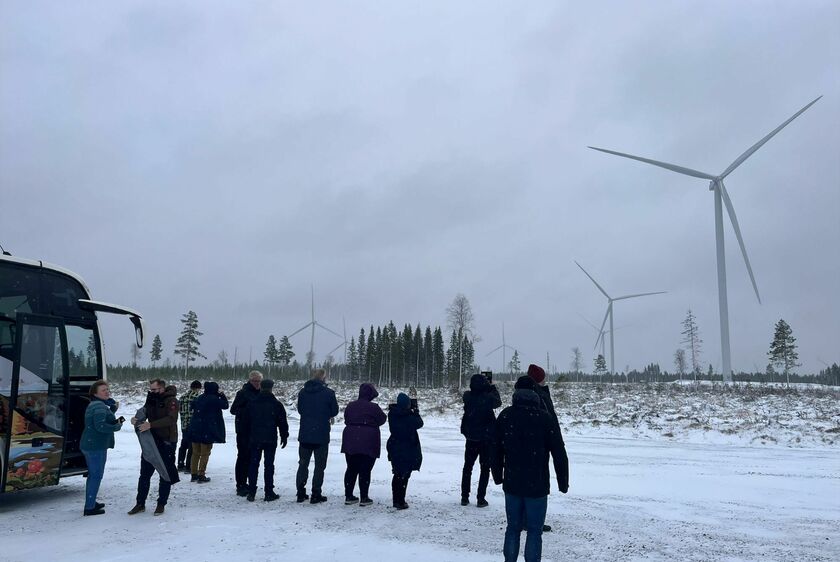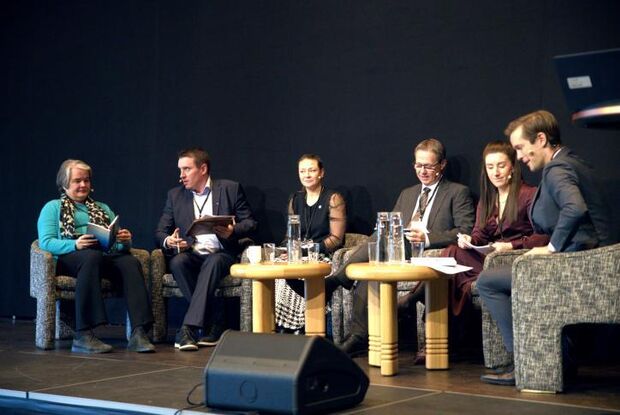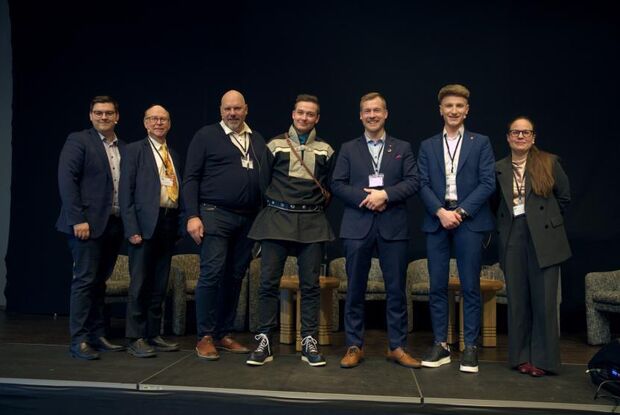During the three days of presentations, discussions and field trips, conference participants exchanged their views on how to balance green transition in the North with regional sustainability and nature preservation. It was underlined that the rights of indigenous peoples in the process of green shift should be secured, to ensure that the new economic transition is not turning into the “green colonization” of the lands.
Drastic biodiversity loss in the European Arctic was mentioned as a threatening issue which requires immediate actions from all stakeholders. Biodiversity conservation measures should be implemented by companies involved in the economic activities in fragile Northern areas. Convention on Biological Diversity is one of the tools to prevent further distinction of local species.
In the situation of increasing energy demand, wind power has become an important source of electricity in many Northern regions, but it also provokes discussions in the society. Overview of the wind power situation and Sweden, Finland and Norway, possibilities and challenges of the industry and its environmental sustainability presented at the conference can be found in the uploaded presentations.
Growing mining industry and its impact on the environment – which can be compensated by companies - were also discussed by the event. A new project aimed at capacity building on battery value chain operations was presented by the Finnish Environment Institute within the Session on batteries and mining. One of the events of the project will be held in Voukatti, Kajnuu Region, on 13-14 November 2023.
A separate session was devoted to forest bioeconomy which particularly discussed use of forests and forest policy priorities in the Nordic countries, as well as initiatives on voluntary forest protection. Involvement of civil society in forest management was showcased by the project “Citizens’ Jury on the fair use of the forests in Lapland”, initiated by the Regional Council of Lapland in 2022.
Interreg Aurora Programme, Nefco (Nordic Environment Finance Corporation) and Norrlandsfonden offered financial instruments to support cooperation for just sustainable transition and green investments.
Urban planning and supply of skilled labour in the Northern regions was another important topic of the conference. The ongoing transition sets higher demand of competent workforce, and the regions have to advance in order to attract people and make them stay in the North. Comprehensive urban planning, developing housing sector, enabling safe environment, and creating digital platforms to make the assimilation processes easier – these are the tools which contribute to creating sustainable skill supply chain in municipalities.









